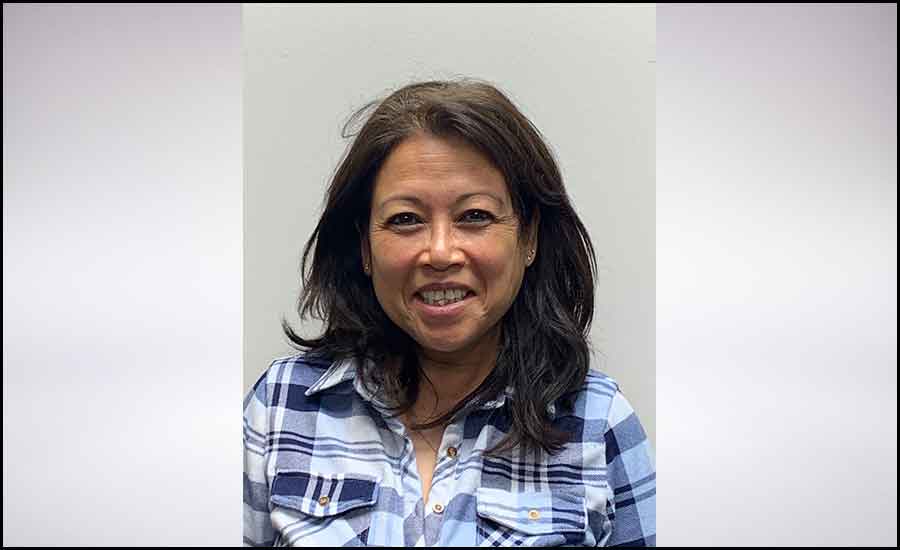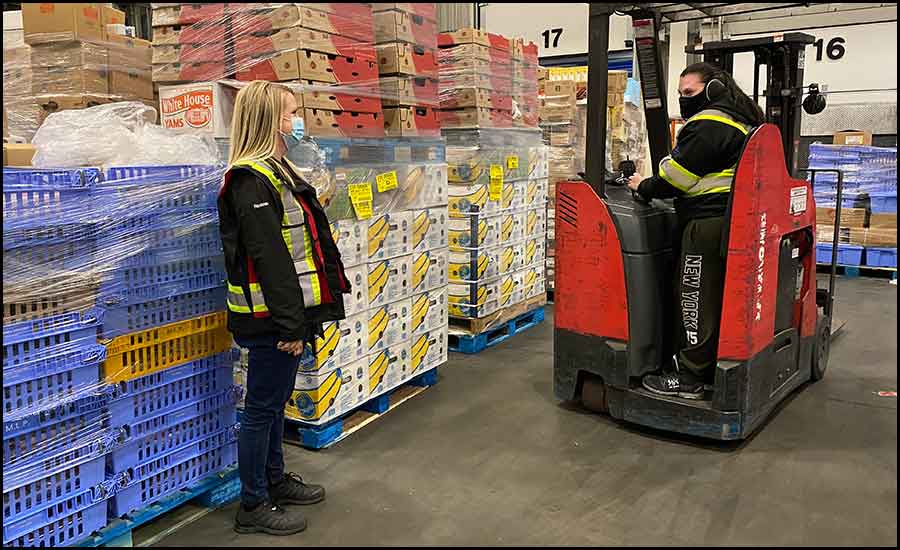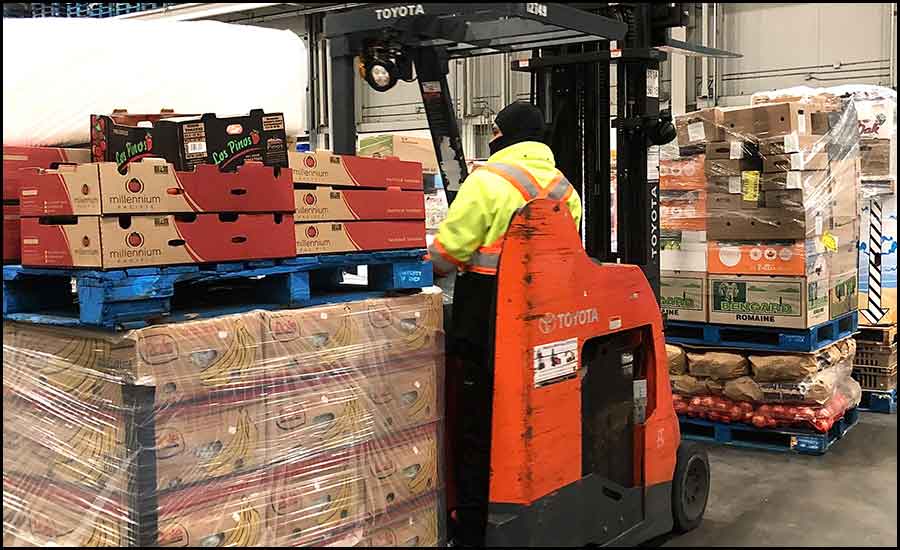Leadership Lessons from Women in Supply Chain Management
Advice from three industry veterans for women wanting to grow their careers in this always-evolving industry.

Business along the cold chain grew at a record pace in 2020 due to the dual drivers of pandemic shopping and the continued rise of e-commerce. Along with that growth came the increased need for labor to keep goods and supplies moving at an accelerated pace to their destinations. Even with the pandemic fading at the mid-point of 2021, orders along the supply chain are still robust, and the need to hire additional workers to help meet daily demand is continuous.
Traditionally, one overlooked and underutilized labor pool has been women. The industry has been a male-dominated field for decades, but the need for additional help today—combined with increased automation taking many of the repetitive and physically taxing jobs out of the equation—has put women in a better situation to start a cold chain career.
“High demand equals increased opportunity, and opportunity is not a luxury that is often afforded to women,” says Christienne Herbert, traffic office team leader at DHL Supply Chain in Langley, British Columbia, near Vancouver. “For this reason alone, women might be determined to pursue a career with cold chain companies.”


Christienne Herbert is a traffic office team leader at DHL Supply Chain near Vancouver, and Raeleen Routhier is an HR manager at DHL affiliate TCL Supply Chain grocery distribution near Edmonton. Both women say advice from mentors at crucial times in their careers has helped them achieve success in the industry. Photos courtesy of DHL Supply Chain.
Herbert, along with DHL colleagues Coleen Battel, a quality assurance manager in Langley, and Raeleen Routhier, HR manager at DHL affiliate TCL Supply Chain grocery distribution near Edmonton, have about 80 years of combined experience. None of them intended to work in supply chain at the start, but now they view it as “an industry that, with hard work and dedication, can open up any avenue of work that you’re passionate about,” says Routhier.
Because of their extended experience, these three have seen and the highs and lows of working in the industry and have participated in its evolution toward inclusive staffing. Here, they offer advice to aspiring women looking at a career in the field.
Focus on the Journey
“I didn’t have an interest in the supply chain when I applied at VersaCold in 1991,” remembers Battel. “As a mom with a husband who worked during the day, I was looking for work that would accommodate a work-life balance. The job opportunity came up for afternoons and enabled me to be with my children during the day. At the time, I didn’t think this was going to be a career for me. Now after 30 years of being in the business and having had numerous opportunities to grow, I realize this is my career path.”
Routhier and Herbert had similar starts in the industry. Routhier took a temp agency placement at a large retail distribution center in 2007, while Herbert spent 21 years in the end-to-end textile manufacturing/distribution industry in her home country of Mauritius, before moving to Canada in 2004.
While all three eventually ended up with DHL in Canada, each has had a unique journey to that destination. Battel started as a Customer Service Representative, then moved to Lead CSR, CSR Supervisor, Operations Supervisor, Health and Safety Claim Management, CSR/Inventory Control Manager, Inventory Control/Quality Assurance Manager, and currently, Quality Assurance Manager for two sites that employ approximately 1,000 people. “I’m responsible for food safety and quality,” Battel says, adding that her sites recently achieved SQF certification.
Routhier’s supply chain stints include Administrative Assistant in retail distribution, supply chain-focused human resources work in the automotive and oil/gas industries, and now, HR Manager at TCL. In her early work in retail distribution, Routhier says, “This is where my curiosity started to grow around how much the supply chain, especially within the grocery industry, can impact our communities. I discovered my passion for supply chain and influencing change in an organization, and with that, adjusted my education focus to complete my diploma in Human Resources.”
Herbert started as a Receptionist, was promoted to Manager, then to Head of Administration and HR for a 1,200-person textile company in Mauritius. After moving to Canada, she started as an Office Clerk at DHL, progressed to Front Office Administrator, Operations Office Coordinator, and to her current position as Operations Office Team Leader. “This journey has highlighted the importance of fortitude, perseverance, commitment and hard work required for effective and efficient operationalization, and has instilled within me a source of inspiration from my colleagues to continue growing as a leader in the industry,” says Herbert.
All three say each stop on their career path was a chance to see and experience a larger scope of supply chain opportunities, and kept them interested in moving forward within the industry.
“The most humbling stories I’ve heard from the females I work with is that this industry is full of opportunity that never seemed in reach before,” Routhier says. “If you want to drive equipment, you can do that. If you want to work in a physically demanding job that keeps you fit, you can do that. If you want to be in inventory control or a supporting function, you can do that. If you want to be an operations manager, you can do that too.”
Battel adds that before she started at DHL, she was in a payroll position that on the surface, didn’t seem connected to supply chain work. “Little did I know I would be using that knowledge and more in my current role.”

Coleen Battel is a quality assurance manager for DHL Supply Chain near Vancouver. She oversees two sites and is responsible for food safety and quality. Her sites recently earned SQF certification.
Listen to Mentors
All three say the presence of mentors at different stages in their careers helped to point them in the right direction, especially when circumstances were challenging. “One bit of advice I had was, ‘Stop chasing the title and show up.’ I heard this early in my HR career when I was frustrated that a peer with an elevated title didn’t have the results I did,” says Routhier. “My mentor said, ‘Show what you can do in your role, and titles are an afterthought.’
“The second bit of advice,” Routhier continues, “was, ‘We didn’t hire you to work on your weaknesses, we hired you because you are great.’ That means use your energy to focus on making the great things about you even more amazing. It’s not that weaknesses aren’t important to work on in the background, but don’t let them define you.
“These two instances have greatly impacted my outlook of my career as well as set a benchmark for how I communicate and develop my team. Throughout your career, it’s easy to look at other people’s progression and wonder what more you can do to get there. It takes energy and effort to continuously ground yourself, review what you personally can contribute to your own success, and keep a focus on that.”
Don’t Listen to Negativity
At the other end of the spectrum, our interviewees have all experienced a different set of rules in the workplace than their male colleagues in this traditionally male-centric field, especially early in their careers.
“I sometimes struggled to be respected for the job I do, the decisions I make, and acceptance that I can do the same job just as well or better than a male counterpart,” notes Herbert. “We’ve come a long way since I first joined the industry, but I’m a firm believer that we should all look at the quality of the work rather than the worker in any environment. I hope the women who follow my path into supply chain find fewer obstacles to achieve their own success.”
Determining what’s acceptable workplace behavior is one way Routhier has helped keep her career on an upward trajectory. “Setting boundaries is a lifelong journey and is extremely important, so the environment you’re working in is one that supports growth. The pull between ‘being one of the boys to fit in’ and ‘showing up as you are’ is hard to navigate, especially in the early stages of a career. If someone says an off-comment or joke, have a voice for others to say that’s not appropriate. Be respectful and concise on what actions around you are acceptable and the environment will adapt. And if it doesn’t, have the courage to leave and find somewhere that will.”
 "I have been very willing to continuously be curious about operations. This has allowed me to not only 'talk Ops' but have factual support for why my ideas and programs are going to work and the reason for the timing," says Routhier.
"I have been very willing to continuously be curious about operations. This has allowed me to not only 'talk Ops' but have factual support for why my ideas and programs are going to work and the reason for the timing," says Routhier.
Evaluate Potential Employers
Routhier’s advice for women seeking a supply chain start is to take look at the hard data of hiring within companies before committing. “Dive deep into where the business stands from a gender equality standpoint. It’s easy to talk about the importance of hiring women in the supply chain, but I would challenge females to ask the questions that reveal raw data. What’s the current ratio, or percentage, of women to men in hourly and salaried roles? What are the business goals and initiatives around gender equality? How many females have been hired in the last year? How many are still with the company? How many females have been promoted in the last year? I believe this will be the best indicator if the business has an updated focus on gender equality or if it’s a few years behind.”
 At TCL Supply Chain grocery distribution near Edmonton, Routhier helped recruit 110 new team members to the facility in 2020 to help meet demand for retail foods.
At TCL Supply Chain grocery distribution near Edmonton, Routhier helped recruit 110 new team members to the facility in 2020 to help meet demand for retail foods.
Celebrate your Successes
Our interviewees say no matter what level of the supply chain you work in, be sure to celebrate your successes and mark your milestones to build confidence in your career while moving your company forward. For example, Routhier says she helped recruit 110 new team members in 2020, bringing the total at her facility to 400 people, through a combination of online and in-person programs she put in place focused on inclusive hiring and wellness initiatives.
Herbert says she’s worked her way from the ground up at her operation, coming in contact with every department along the way, and as a result, has a distinct understanding of how to keep morale high and maintain staff retention—a crucial skill given the light labor market. “Most new employees have stayed here for several years even in entry-level positions. If I can keep my team together longer, it definitely benefits our performance, and therefore the company,” she says.
As for Battel, in addition to achieving SQF certification for food safety at her facilities, she also implemented a technology tool that allows her team to complete their audits efficiently and review the analytics quickly to identify and anticipate trends in the future.
Herbert concludes that overall, “there’s an increased acceptance of women in the supply chain industry today compared to when I started, but there’s still work to do. The good news is that hiring women has become less of a focused process and more of a normality. The mindset revolving around women has changed and there’s less stigmatization and prejudice towards women. My advice to women is to maintain a strong identity and be confident in everything you do. Relax, learn, and do what you think is right.”
Looking for a reprint of this article?
From high-res PDFs to custom plaques, order your copy today!







